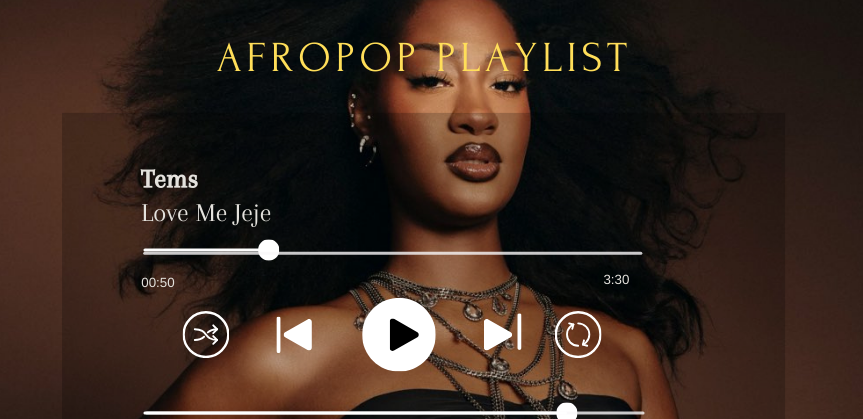This year, despite that Afrobeats is experiencing what may be perceived as an underwhelming epoch as a genre in the past months, artistes are increasingly drawing inspiration from within, creating music that offers nostalgic novelty and honours our musical heritage by sampling classic traditional sounds.
By Abioye Damilare Samson
If Nigerian Pop Music started its global ascendancy in the later part of the 2010s, the post-COVID era marked its most salient milestones. Before Afrobeats cracked the global pop framework to become an internationally recognised genre, it was common to hear people declare that they never listened to Nigerian music. We didn’t just denigrate the music, we used it to delineate social boundaries, indicating that those who enjoyed our local genres were less cultured or refined. Reflecting on this, Afropop’s propulsive journey into the heart of modern pop has been one of resilience and constant evolutionary change.
The Nigerian music scene is presently witnessing a full-circle moment as the stronghold of Afrobeats, producing most of the stars who have penetrated the Western world in recent years. Not only are we exporting our sound to the global market, but we are also introducing the world to our local sound through sampling and recontextualising old records and traditional rhythms within modern production frameworks.
Historically, the genre has always tapped from varying influences, synthesising traditional African rhythms with elements of Jazz, Funk, and Highlife music to create a new distinct sound. Hence, one of the defining qualities of contemporary Afropop sound is its ability to honour its roots while embracing change. For instance, using Afrobeat rhythms in contemporary hits pays homage to Fela Kuti’s legacy while appealing to today’s dance floor sensibilities. However, there is a perception that Afropop artistes who sample music lack originality. This flawed perception overlooks the rich cultural tradition of innovation that defines the genre. An instance of this is when in 2023, Brymo, in an interview with TVC news, threw jabs at Burna Boy, questioning the authenticity of his musical ability by pointing out Burna Boy’s frequent sampling of Fela’s music. Sadly, Brymo is not the first to say such things; numerous misinformed music fans have made similar remarks. This further exposes how widespread the pervasive misapprehension regarding the role of sampling in the evolution of music is, particularly when it comes from a renowned music artiste.
To begin with, sampling is not a new phenomenon. Research into the 50s shows that it is a practice across generations. One of Nigeria’s iconic reggae-tinged songs of the 1950s, “Eni Ri Nka He”, captivated listeners with its poetic and introspective Yoruba lyrics. This classic song, crafted by Ambrose Campbell, the man acknowledged by Fela as the father of modern Nigerian music, ruled the airwaves with its blend of traditional sound and Caribbean influences. Fast forward to the 1970s, one of the leading pioneers of Juju music, Ebenezer Obey, took inspiration from Campbell’s classic record and reimagined the song into a more mellow, more euphonious and expansive record with the same title, “Eni Rin Kan he”. The Juju maestro’s version retained the soulfulness of the original while integrating it with the distinctive rhythms and harmonies of Juju music.
In June 2023, we see yet another evolution of this same timeless piece. CDQ, one of Nigeria’s prominent Indigenous street-pop rappers, sampled Ebenezer Obey’s “Eni Rin Kan he” in his track “Vanity”. In his mid-tempo Afro-pop rendition, CDQ blended Hip-Hop with the traditional Juju sound, creating a fusion that pays homage to the past while appealing to contemporary audiences. This progression from Campbell’s original to Obey’s reinterpretation and finally to CDQ’s modern twist epitomises the influence of Nigerian music and the genre’s adaptability across generations.
This year, despite that Afrobeats is experiencing what may be perceived as an underwhelming epoch as a genre in the past months, artistes are increasingly drawing inspiration from within, creating music that offers nostalgic novelty and honours our musical heritage by sampling classic traditional sounds. When Shallipopi released his sophomore album, Shakespopi, in April, one of the standout tracks off the album, “ASAP”, samples “Ikwekiame Nedumhe”, a classic track by Edo legend, Alhaji Waziri Oshomah, and his Traditional Sound Makers, whose Afemai music style was hugely popular in the ‘70s. This is not the first time Shallipopi has drawn from old records to create dance-oriented, night-club-friendly music. His smash hit, “Oba-pluto”, which samples Pa Monday Edo and the Osemwegie Ebohon Theatre International Troupe, is cut from the same fabric.
In 2022, Seyi Vibez, one of the most versatile street-pop artistes in the music scene, worked his way to the top of the Afropop table, thanks to percussion-laden music that is conceptually a homage to genres like Fúji, which originates from “Were” music, also known as “Ajisari” (a genre of music performed as a call to prayer for Muslims before dawn during Ramadan), and Apala, a more percussive-driven, Islamic-rooted music style from the early 1990s. In some of his hit songs like “IQ”, “Billion Dollar”, and “Deja Vu”, one can hear the apparent influence of Saoti Arewa, an Islamic musician very popular in Western Nigeria. In songs like “G.O.A.T”, he samples Apala legend Alhaji Fatai Olowonyo’s “Elewure Wole”; in “Different Pattern” and “Apala Interlude,” he samples Highlife legends Orlando Owoh and Haruna Ishola, respectively.
At the time when Ayra Starr released her eponymous EP, Ayra Starr, in 2021, she jazzed up “Sare”, a track off the EP, with a sample of “Orere Elejigbo” by the legendary duo Lijadu Sisters, one of the most popular acts in the Nigerian music scene of the 1970s. This nod to a classic funky record indicated that what was formerly labelled as “alternative” years ago has now become firmly entrenched in pop culture. Three years later, she would morph into a global pop star to cement her status with a new album, The Year I Turned 21, and “Jazzy Song”, with the interpolation of the intro of Wande Coal’s dance floor anthem, “You Bad”, would be one of the standout track off the album. Tems is also not excluded from the operational framework; the lead single, “Love Me Jeje”, off her new album Born in the Album, creatively reinterprets the 1997 classic Nigerian Afro-soul love record “Love Me Jeje” by Nigerian singer-songwriter Seyi Sodimu with vocals from Shaffy Bello, to create a lush, simmering guitar-groovy bop which was first previewed at her debut Coachella set.
Interestingly, seven months ago, the producer and the CEO of Coded Tunes Studios, ID Cabasa, kicked off the re-imagination of old Nigerian tunes to extend their legacy to the younger generations while archiving our cultural history. “Photocopy Reimagined”, the first track introducing the concept, sees the producer recreating 9ice’s “Photocopy” from his 2008 evergreen album, Gongo Aso. The track features rapper, Vector, who brought his skilful lyricism and cadence to the mid-tempo track that makes for some pleasant listening.
The follow-up project, “Olufunmi Reimagined”, is the reimagination of Styl Plus’ 2002 love ballad, “Olufunmi”, featuring Fireboy, Joe Boy, BOJ and Odumodublvck. In contrast to the positive acceptance the first received, this latest received mixed reviews. To be fair, the song may have succeeded in its mission of inspiring a rush of nostalgia particularly among those who cherished the original in the early 2000s by retaining the orchestral violin intro and the poignant chorus, but Odumodublvck’s lyrics on the song somewhat reduce the potential and value that the original song possesses. “Olufunmi” is a classic love ballad cherished for its tender expression of love, and to reimagine classics like this is to preserve the thematic core of the original composition. Featuring artistes who align with the theme and flow of the original track ensures that the reimagined version respects and builds upon its predecessor rather than detracting from it.
This recent surge in samples and interpolations from Nigerian classics seen in Afropop releases is a pointer to growth within the music ecosystem. In this way, it not only preserves the legacy of earlier musicians but also revitalises it — ensuring that classic sounds inspire new generations to explore and create novel sonic sounds. Consequently, as we continue to experience a full-circle moment for Afropop, it is, of course, critical for artists, producers, and songwriters to understand the legal process of sampling responsibly, ensuring that they secure the necessary clearances and permissions. This not only respects the original creators but also preserves the integrity of the music industry.
Abioye Damilare is a music journalist and culture writer focused on the African entertainment Industry. Reading new publications and listening to music are two of his favourite pastimes when he is not writing. Connect with him on Twitter and IG: @Dreyschronicle



